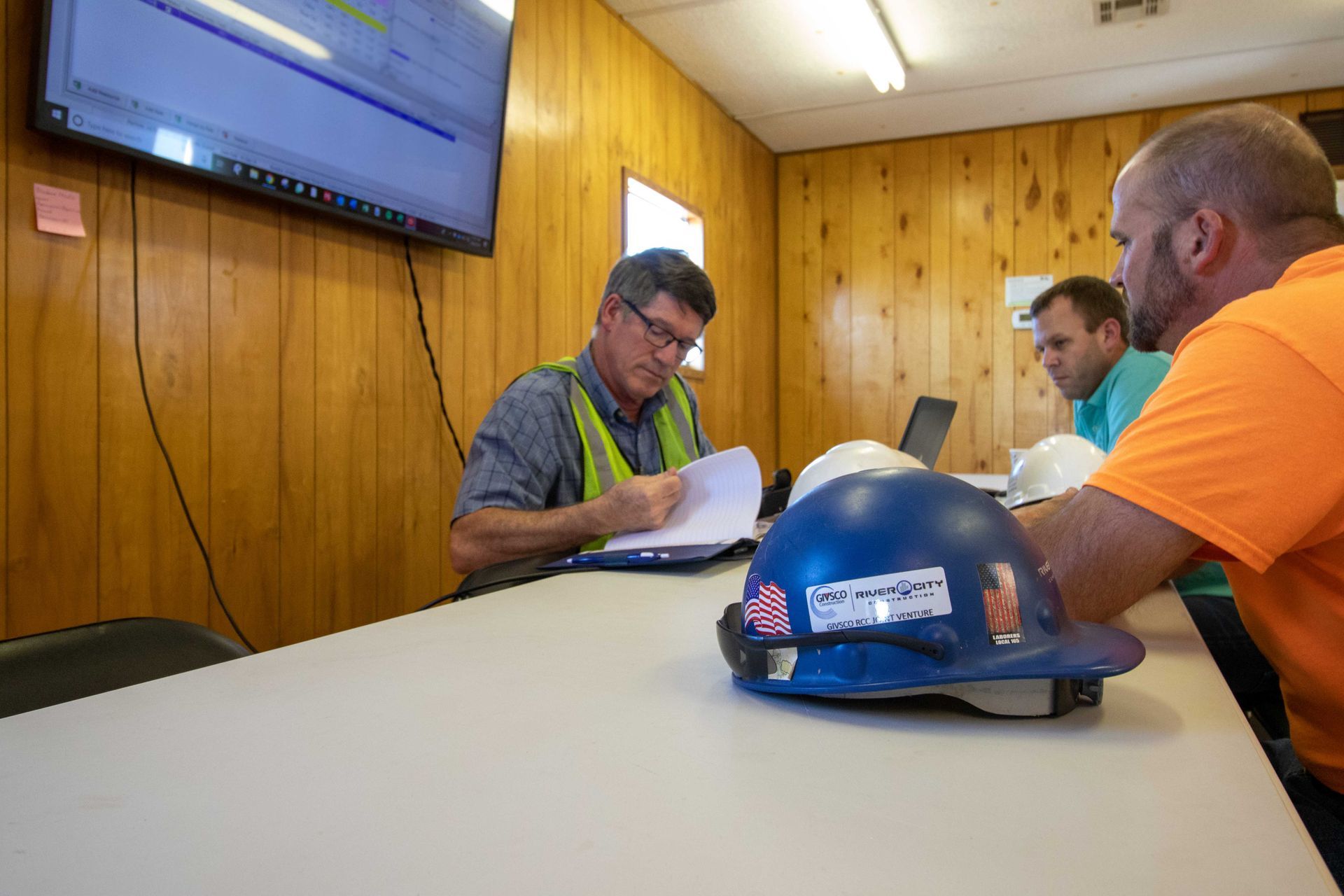Why Your Business Needs a Construction Consultant
The construction industry is a high-stakes arena where projects involve significant financial investments, tight timelines, and various risk factors. Managing these complexities can often feel overwhelming for business owners and project managers.
That's where construction consultants step in, offering expertise and guidance to optimize operations, mitigate risks, control costs, and increase profitability. Partnering with a skilled construction consultant can transform your business's operations, ensuring long-term success and efficiency.
Explore the key benefits of working with a construction consultant and why they are an indispensable asset to your business.
Expertise That Optimizes Every Phase of Construction
Construction projects typically involve multiple stages: planning, design, procurement, execution, and close-out. Each phase presents unique challenges, and mistakes in any of them can have costly consequences.
Construction consultants bring years of industry experience and specialized knowledge to help businesses navigate these challenges seamlessly.
Pre-Construction Phase
During the planning and design stages, consultants provide essential insights to ensure feasibility and cost-effectiveness. They assist with project scheduling, risk assessments, and constructibility reviews, identifying potential obstacles before they escalate.
Execution Phase
Once the project is underway, consultants monitor progress, quality, and safety compliance, ensuring that all activities align with the project plan. They help resolve issues promptly, preventing delays and costly rework.
Post-Construction Phase
A consultant ensures a smooth transition during project close-out, assisting with inspections, documentation, and final approvals. Their involvement minimizes disputes and ensures satisfaction for all stakeholders.
Risk Mitigation and Compliance Management
Construction projects are rife with potential risks, including labor shortages, material price fluctuations, safety concerns, and unforeseen delays.
A construction consultant identifies and addresses these risks proactively. Conducting thorough risk assessments, consultants help create contingency plans that safeguard your business from potential setbacks.
Additionally, construction consultants stay updated on the latest industry regulations and standards, ensuring that your project complies with all local, state, and federal requirements, reducing the likelihood of fines, penalties, or legal disputes.
Cost Control and Budget Optimization
One of the most significant advantages of hiring a construction consultant is their ability to control costs without compromising quality. Consultants deeply understand market trends, materials, and labor costs, enabling them to develop accurate budgets and cost estimates.
Value Engineering
Consultants also employ value engineering techniques to optimize resources. They analyze project designs and suggest alternative materials, methods, or approaches that achieve the same functionality at a lower cost.
Change Order Management
Managing change orders is another critical aspect of cost control. A consultant helps handle unexpected changes efficiently, ensuring they don't derail the budget or timeline.

Improved Project Management and Efficiency
Construction projects involve coordination between various teams, including architects, engineers, contractors, and suppliers. Miscommunication or misalignment among these parties can lead to delays and errors.
A construction consultant acts as a central point of communication, ensuring that all stakeholders are aligned and informed. They create realistic project schedules and enforce deadlines, keeping everyone accountable.
Consultant involvement streamlines workflows and minimizes downtime, boosting overall efficiency.
Enhanced Quality Assurance
Delivering a project that meets or exceeds client expectations requires stringent quality control measures. Construction consultants help develop and implement quality assurance plans, ensuring that every aspect of the project adheres to industry standards.
From selecting reliable suppliers to conducting periodic inspections, consultants focus on maintaining high standards throughout the project lifecycle. Their oversight reduces the risk of defects, rework, or dissatisfied clients.
Access to Advanced Tools and Technology
Construction consultants often have access to cutting-edge tools and technology that can elevate your project's performance. They leverage project management software, Building Information Modeling (BIM), and analytics tools to improve decision-making, track progress, and forecast potential issues.
These technologies provide real-time insights into project status, enabling quick adjustments to keep the project on track. By partnering with a consultant, you gain access to these advanced resources without investing heavily in them.
Tailored Strategies for Business Growth
Every construction business is unique, with its own set of challenges and goals. A consultant takes the time to understand your specific needs and develops customized strategies to address them.
Whether you want to expand your services, enter new markets, or improve operational efficiency, a consultant provides actionable insights to help you achieve your objectives.
Competitive Advantage in a Crowded Market
The construction industry is highly competitive, and standing out requires more than just completing projects on time and within budget. A consultant helps position your business as a leader by introducing innovative practices, enhancing customer satisfaction, and delivering superior results.
You gain a reputation that attracts more clients and lucrative opportunities by showcasing your ability to handle complex projects with precision and professionalism.

Long-Term Savings and ROI
While hiring a consultant involves an upfront investment, the long-term benefits outweigh the costs.
A consultant delivers a substantial return on investment by preventing costly mistakes, optimizing resource use, and improving project outcomes. The efficiencies they introduce also benefit your business long after the initial project has concluded.
Partner With Thomas D. Wilson Consulting
In today's fast-paced and challenging construction environment, partnering with a construction consultant is not just a luxury—it's a necessity.
Their expertise, risk management skills, and focus on efficiency can significantly enhance your business operations, ensuring the completion of projects on time, within budget, and to the highest standards.
The world of commercial construction evolves with every season. At Thomas D. Wilson Consulting, Inc., we've experienced all the industry's twists and turns and are ready to consult on your projects to ensure they stay on time and within budget.
We are construction scheduling experts and know programs like SmartPM™, Primavera™, and many more.
Let's talk about your next project!





